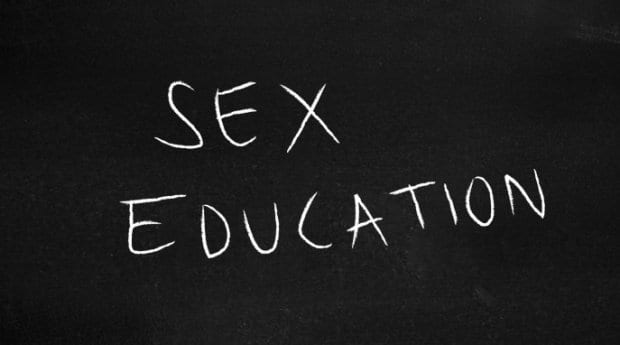Imagine a world where sex education were enthusiastically taught in school.
No, really. What difference would it make if, from the time they were children, our students learned to enjoy their bodies? To not only name their body parts but to take pleasure in them? To not only celebrate their sexuality, but to welcome a spectrum of attraction?
Would we raise a generation of healthy, sexually liberated people, unrepressed by the shame and squeamishness that stifled their parents, grandparents and great-grandparents?
Would homophobia evaporate at the source?
In a society in which sex is both tantalizing and taboo, and gay sex still elicits shudders in too many circles, a new generation raised to unselfconsciously celebrate pleasure and embrace attraction of all kinds (gay, straight and fluid) could chart a new course free from repression, including homophobia.
It won’t happen tomorrow, at least not in BC. Despite our education minister’s claim to be a leader in sexual education, we know from experts in the field that our curriculum is unevenly taught at best.
Though teachers here are required to teach kids about puberty, sex and even sexual orientation, they’re also given a lot of leeway to deliver the lessons as they see fit. Given that most teachers are likely products of their own stifled sexual upbringing, it’s reasonable to expect that they’re inadvertently (or in some cases perhaps deliberately) passing on their squeamishness around sex and even more so around gay sex to their students.
The answer to many observers lies in better teacher training.
I wouldn’t expect your average math, English or physical education teacher to automatically know how best to teach sex ed. Had they grown up in sex ed classes that celebrate pleasure they would probably feel less intimidated and be better prepared teach the next generation now. But most of us have memories of awkward sex ed classes, with outdated images of fallopian tubes, a couple of practice condoms uncomfortably passed around the classroom and a teacher stumbling through a topic they clearly wished they didn’t have to teach.
Despite the obvious need for training, teachers are generally handed sex ed duties without sufficient support or instruction.
“Teachers don’t get any training to teach sex ed,” says Kristen Gilbert, director of education at BC’s Options for Sexual Health (OPT), an independent organization which seeks to fill the gaps in sexual health education across the province.
“Teachers are expected to meet the curriculum but are given little to no support in training in order to do that,” Gilbert told Daily Xtra hours after Ontario unveiled its long-anticipated and previously derailed sex ed overhaul.
Some teachers in BC drop sex education altogether, Gilbert says. “Telling teachers that they have to cover the curriculum is actually useless — unless they are supporting these teachers with information and training.”
The result, she told us five years ago and it seems little has changed today, is “hit and miss” sex education across the province.
So does BC need its own sex education overhaul? Of course it does. Students across the province should have the same access to celebratory, useful, up to date, well taught information on sex, sexual orientation, safer sex and sexual pleasure for all.
Ontario has taken a step in the right direction, issuing clear guidelines that lessons on sexual orientation, gender identity and consent be incorporated into sex ed in various ways from elementary school on. It remains to be seen how celebratory the lessons will be, how well teachers will be trained to deliver them and how consistently the new guidelines will be met, but it’s a step.
BC’s education minister would do well to stop boasting and start taking notes.

 Why you can trust Xtra
Why you can trust Xtra


